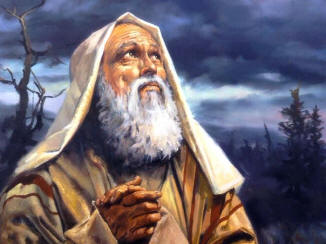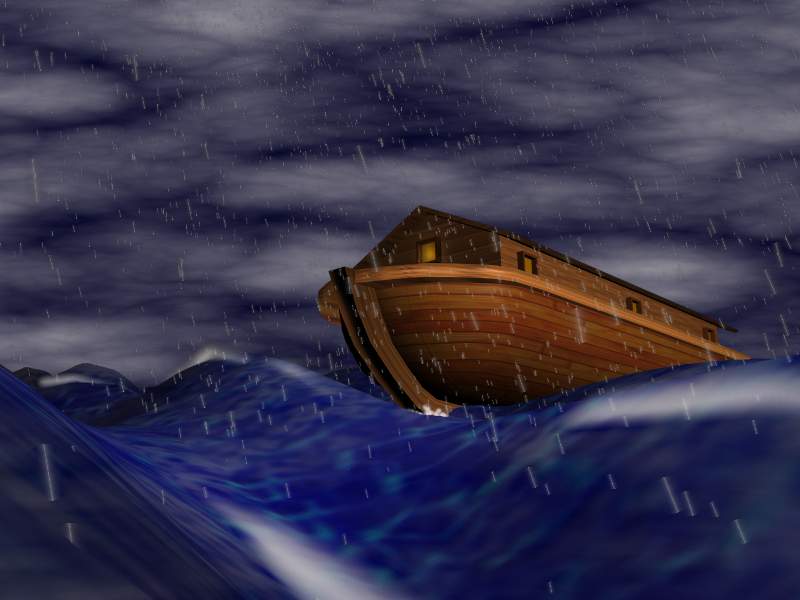Post Author: Bill Pratt

The calling of Abraham (his name would be changed from Abram to Abraham in Genesis 17) in Genesis 12 is one of the first biblical events that historians can date with any kind of precision. Many scholars believe that Abraham moved to Canaan around 2100 BC, or 2100 years before the birth of Christ.
Ur of the Chaldeans, where Abraham’s family originated, is thought to be located southwest of the ancient city of Babylon, located in what is now Iraq, near the modern town of Hilla, and on the eastern bank of the Euphrates river. Babylon was founded near the end of the 3rd millennium BC, and lasted through the 2nd century AD.
On to the verses….
In chapter 11, verses 27-30 introduce the reader to Abram’s family (his name would later be changed to Abraham by God). We learn that Abraham’s father is named Terah and that Abraham has brothers named Nahor and Haran. Abraham’s wife is named Sarah (her name is changed from Sarai to Sarah in Genesis 17) and Nahor’s wife is named Milcah.
Then in verse 30, out of the blue, we read that Sarah cannot conceive children. In the ancient near east, for a woman to be unable to conceive a child was devastating to her and her husband. The author of Genesis 11 is letting the reader know that if Abraham is going to have any children with Sarah, God must intervene. The need for God to intervene will strike the reader as we read the first verses of chapter 12, where Abraham’s descendants are promised blessings. How can Abraham have any descendants if his wife is barren?
In verses 31-32, we learn that Terah actually had left Ur and made it as far as the city of Haran (not to be confused with Abrahams’ brother). See this link to a map showing Abraham’s journeys.
As we come to chapter 12, we read some of the most important verses in the entire Bible. Here the author of Genesis tells us about God’s plan to bless mankind after the disasters that had occurred at the Fall, the Flood, and the Tower of Babel. We learn how God will create for himself a people who acknowledge him as the one true God, and who have as their homeland a place called the Lord’s Land.
According to the Zondervan NIV Study Bible,
In the ancient world of the OT, all the various gods that were worshiped and relied on were gods of a particular place and/or a particular people (a family, tribe, or nation—the choice of the gods to be venerated by the social unit resting in the hands of the communal leader[s]). The most effective way for the true God to break into such a religious world and gain world recognition was to establish a relationship with a patriarchal head of household and call him away from his idolatrous clan and from the place(s) with which its gods were linked and to establish that patriarch’s household as the beginnings of a people who acknowledged only him as their God, and then locate them in a place/land that he claimed as his own. That is the program that Yahweh initiated with his summons to Abram.
Note the seven parts of God’s promise to Abraham in verses 2-3 of chapter 12. First, “I will make you into a great nation.” Second, “I will bless you.” Third, “I will make your name great.” Fourth, “You will be a blessing.” (Some scholars read this fourth part as a command to Abraham, not a promise). Fifth, “I will bless those who bless you.” Sixth, “Whoever curses you I will curse.” Seventh, “All peoples on earth will be blessed through you.” Because of the Hebrew literary style used in this section containing the promises, the original readers would have understood the first and seventh promises to be the most important, that God would make Abraham into a great nation, and that all peoples on earth would be blessed.
In verses 4-9, Abraham’s journey into Canaan is described. We learn that Lot, who is Abraham’s nephew, accompanies him to Canaan. Lot will be an important figure in the coming chapters of Genesis, and that is why the reader is alerted to his presence.
There are three particular places mentioned in Canaan that Abraham visits, all of which are later visited by Jacob, the grandson of Abraham, when Jacob returns to Canaan, and all of which are mentioned as sites occupied by Joshua in the conquest of Canaan some 700 years later. These three sites are 1) Shechem, 2) a place between Bethel and Ai, and 3) the Negev. At Shechem, and between Bethel and Ai, Abraham builds altars to the Lord. At Shechem, God appears to Abraham to reassure him that his offspring would have the land.
 In verses 5-7 in chapter 6, we learn that God is deeply grieved by the wickedness of mankind. Since the days of Adam and Eve, mankind has become more and more sinful. The wickedness has become so extreme that God decides he will exterminate the entire human race. Only one family will escape his judgment: the family of Noah.
In verses 5-7 in chapter 6, we learn that God is deeply grieved by the wickedness of mankind. Since the days of Adam and Eve, mankind has become more and more sinful. The wickedness has become so extreme that God decides he will exterminate the entire human race. Only one family will escape his judgment: the family of Noah. Genesis 3 describes the rebellion of Adam and Eve against God and the immediate consequences of that rebellion. In verses 1-7, we see Eve being tempted by a serpent, which the author describes as crafty. Later in the Bible, in the book of Revelation, this serpent is identified as Satan. The serpent tells Eve that she can become like God, knowing good from evil, if she will only eat of the tree of the knowledge of good and evil, the tree that God forbade Adam and Eve to eat from. The serpent also denies that Eve will die, as God warned.
Genesis 3 describes the rebellion of Adam and Eve against God and the immediate consequences of that rebellion. In verses 1-7, we see Eve being tempted by a serpent, which the author describes as crafty. Later in the Bible, in the book of Revelation, this serpent is identified as Satan. The serpent tells Eve that she can become like God, knowing good from evil, if she will only eat of the tree of the knowledge of good and evil, the tree that God forbade Adam and Eve to eat from. The serpent also denies that Eve will die, as God warned. There are several possible interpretations of the individual verses in Genesis 1, but if we step back and look at the overall theme of the Book of Genesis, chapter 1, what is it about?
There are several possible interpretations of the individual verses in Genesis 1, but if we step back and look at the overall theme of the Book of Genesis, chapter 1, what is it about?